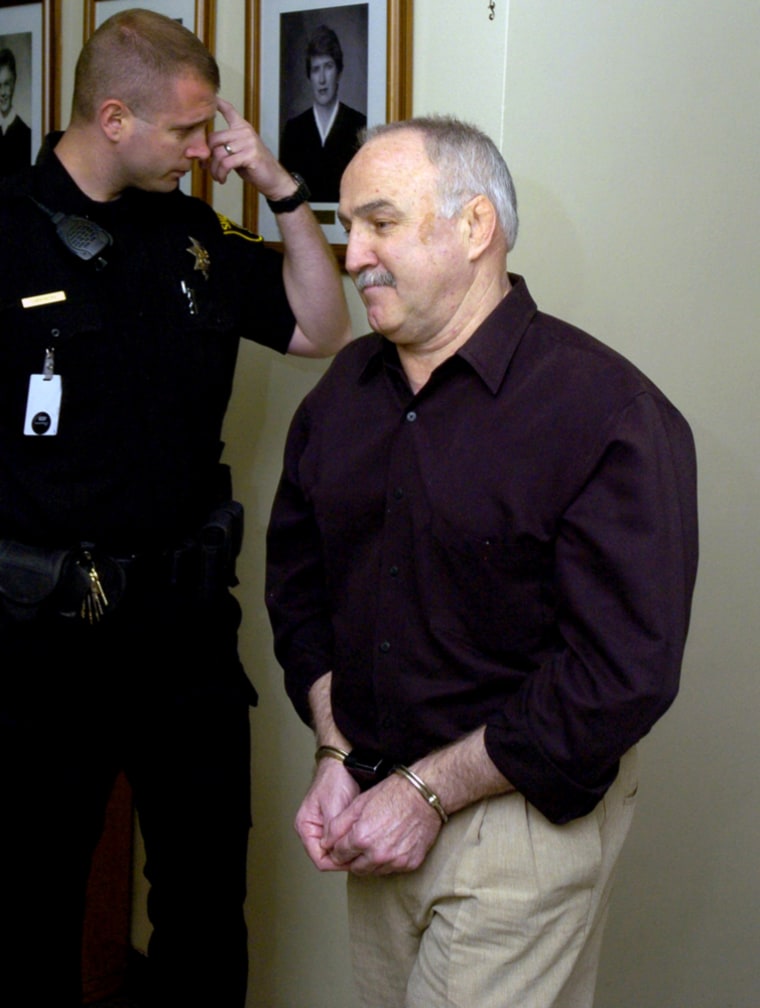Friends of an elderly millionaire who was killed by a local pastor sensed something was wrong long before his death.
The agricultural museum that the Rev. Howard Douglas Porter had promised to establish using the old man's life savings wasn't being built, so one day Les Orr drove 85-year-old Frank Craig to the site. There, behind Hickman Community Church, where Porter was the pastor, stood nothing but an empty grass lot.
"As soon as he saw there was no foundation, that nothing had been done at all, he started vomiting," Orr said, recalling the feelings of betrayal that overwhelmed Craig, his friend of 60 years. "Then he said, 'Take me home.'"
Porter, 57, was convicted Monday of first-degree murder, embezzlement, elder abuse and attempted murder. By the time the verdict was read, the once-lively town debate over whether Porter was to blame for Craig's death had become one-sided, and most people, residents said, seemed resigned to a guilty verdict.
Town's contentious topic
Prosecutors say Porter had staged two car wrecks — one in 2002 that left Craig unable to walk and the other in 2004 that killed him — to cover up that he was stealing money from the man he had befriended.
Hickman resident Mary Horn said what once was a contentious topic was over for her after prosecutor John Mayne outlined Porter's questionable spending of Craig's $1.1 million fortune and revealed that in the first wreck the passenger-side air bag had been disabled. Mayne said part of the sum Porter stole from Craig financed a housing compound for his extended family in nearby LaGrange.
The case put on by defense attorney Kirk McAllister, who argued that Porter was merely a bad driver who took monetary gifts and loans from Craig, did not sway Horn or her friends.
"The senior citizens think he's guilty," she said. "Sometimes the people from the church used to disagree, but now they don't say anything."
At the tidy sanctuary where Porter once preached, a receptionist declined to comment on the case, then printed a statement from elders saying they believe that "God's ultimate purposes" are being "worked out" through the process of the trial.
Dream legacy
The church has a new leader, but the sports fields Porter was building next to the spot he claimed would be home to Craig's museum are still nothing more than poles set in ground delineating a baseball backstop and outfield fence.
Craig, a lifelong bachelor who served as an Air Force mechanic in World War II, spent his life working jobs at a dairy farm, then at a gravel pit on the Tuolumne River near his 20-acre property, where he leased pasture to a cattle rancher.
Craig was frugal, keeping wads of cash stuffed into clocks and other hiding places around his place, said Bud Whitney, his nephew by marriage.
Four years before he died, Craig inherited more than $2 million from a brother, Whitney said. That's when he began dreaming about the legacy he could leave with his accumulation of tractors, mule-drawn plows, spring-tooth rakes and other machinery that he said would stand testament to the men and women who turned the Central Valley into a prolific farming region.
Fortune lost
For months Craig didn't want to believe friends who told him Porter was not spending money on the museum. Finally he asked Orr to show him.
On Thanksgiving Day 2003, Orr drove Craig past countless acres of a wholesale tree nursery Craig detested because "they covered good farmland with gravel and pots," past the Lakeview Market with the American flags painted on the side, to I Street, where the church steeple towers over the landscape.
There was nothing in the field but grass. Craig's fortune was gone with nothing to show for it.
Whitney said the family has filed a civil suit against Porter in the hopes of recovering some of his uncle's small fortune.
Craig's home is gone, sold by Porter to the tree nursery that put endless rows of redwood saplings and oleander trees in black plastic pots in its place. The beneficiary of the $415,000 sale was Hickman Community Church, and Porter even sold the land next to the church where the agriculture museum would have stood.
The money, investigators said, ended up paying for construction loans on Porter's house, which sold for $895,000 while the fallen preacher sat in jail. Porter later testified he did not know what happened to the proceeds of the house built with Craig's money.
Porter is scheduled to be sentenced Sept. 2. He faces life in prison without the possibility of parole because of the special circumstances of murder for financial gain and murder of a witness.
